Plato Dialogues Quotes & Sayings
Enjoy reading and share 14 famous quotes about Plato Dialogues with everyone.
Top Plato Dialogues Quotes

[I]t's necessary to exert very great foresight every time you go to blame or praise a man, so that you won't speak incorrectly ... For you shouldn't suppose that, while stones are sacred and pieces of wood, and birds, and snakes, human beings are not. Rather of all these things, the most sacred is the good human being, while the most polluted is the wicked.
Speech attributed to Socrates in Plato, Minos 319a, trans. Thomas L. Pangle, in The Roots of Political Philosophy: Ten Forgotten Socratic Dialogues, ed. Thomas L. Pangle (Ithaca: Cornell University Press, 1987), 63. — Plato
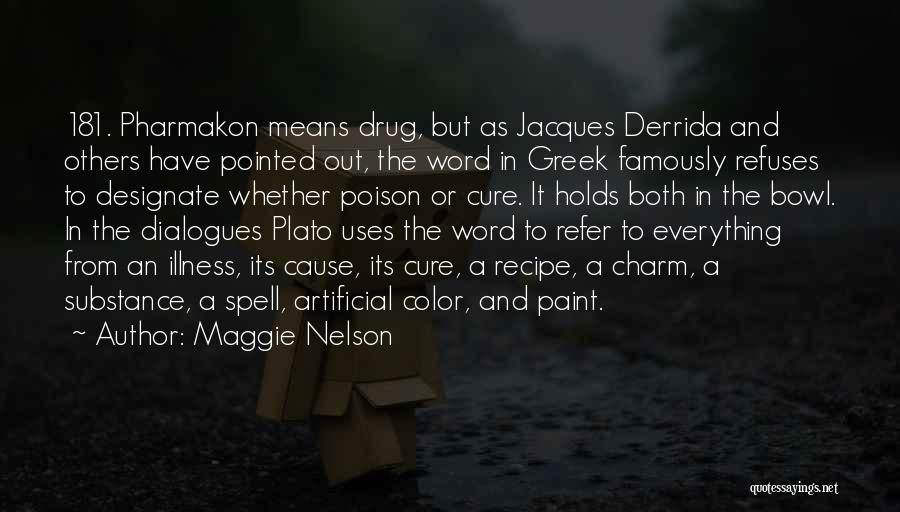
181. Pharmakon means drug, but as Jacques Derrida and others have pointed out, the word in Greek famously refuses to designate whether poison or cure. It holds both in the bowl. In the dialogues Plato uses the word to refer to everything from an illness, its cause, its cure, a recipe, a charm, a substance, a spell, artificial color, and paint. — Maggie Nelson
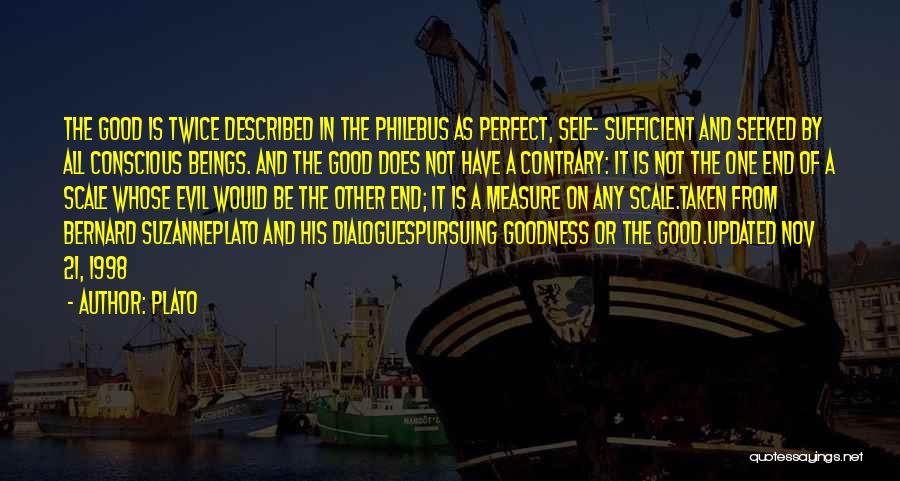
The good is twice described in
the Philebus as perfect, self-
sufficient and seeked by all
conscious beings. And the good
does not have a contrary: it is not
the one end of a scale whose evil
would be the other end; it is a
measure on any scale.
Taken from Bernard Suzanne
Plato and his dialogues
Pursuing Goodness or the Good.
Updated Nov 21, 1998 — Plato

I fantasize that our politicians have been moved by the dialogues of Plato, and thus contemplate the ancient conflict of the sophists versus the lovers of truth. — Daniel S. Loeb

How to define a name, may not only be an inquiry of considerable difficulty and intricacy, but may involve considerations going deep into the nature of the things which are denoted by the name. Such, for instance, are the inquiries which form the subjects of the most important of Plato's Dialogues; as, "What is rhetoric?" the topic of the Gorgias, or, "What is justice?" that of the Republic. Such, also, is the question scornfully asked by Pilate, "What is truth?" and the fundamental question with speculative moralists in all ages, "What is virtue? — John Stuart Mill

Cicero called Aristotle a river of flowing gold, and said of Plato's Dialogues, that if Jupiter were to speak, it would be in language like theirs. — Plutarch
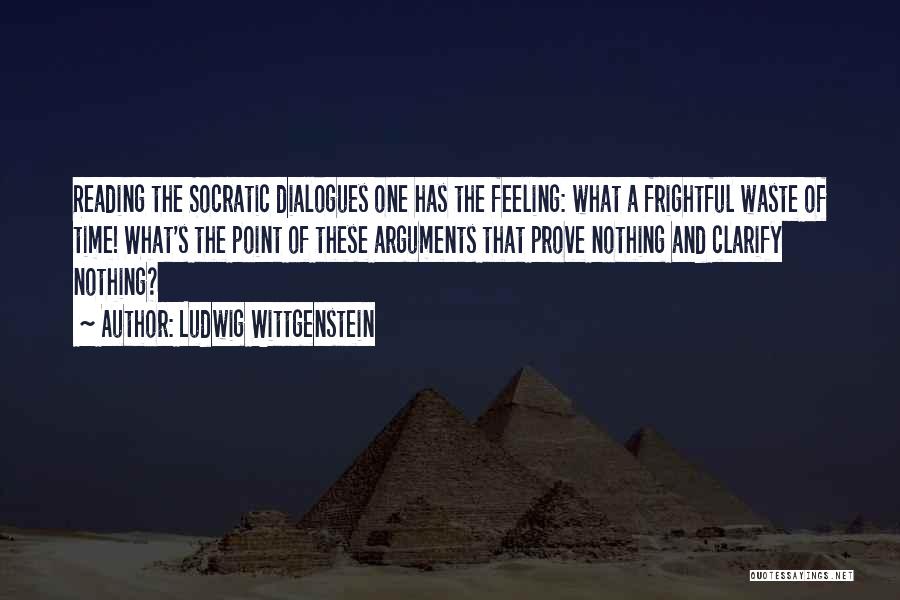
Reading the Socratic dialogues one has the feeling: what a frightful waste of time! What's the point of these arguments that prove nothing and clarify nothing? — Ludwig Wittgenstein
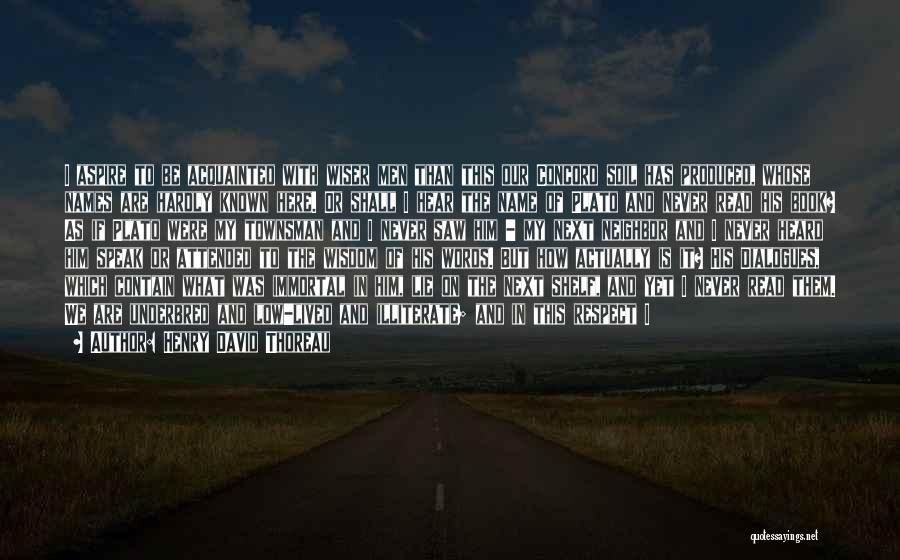
I aspire to be acquainted with wiser men than this our Concord soil has produced, whose names are hardly known here. Or shall I hear the name of Plato and never read his book? As if Plato were my townsman and I never saw him - my next neighbor and I never heard him speak or attended to the wisdom of his words. But how actually is it? His Dialogues, which contain what was immortal in him, lie on the next shelf, and yet I never read them. We are underbred and low-lived and illiterate; and in this respect I confess I do not make any very broad distinction between the illiterateness of my townsman who cannot read at all and the illiterateness of him who has learned to read only what is for children and feeble intellects. We should be as good as the worthies of antiquity, but partly by first knowing how good they were. We are a race of tit-men, and soar but little higher in our intellectual flights than the columns of the daily paper. — Henry David Thoreau

Today you can buy the Dialogues of Plato for less than you would spend on a fifth of whiskey, or Gibbon's Decline and Fall of the Roman Empire for the price of a cheap shirt. You can buy a fair beginning of an education in any bookstore with a good stock of paperback books for less than you would spend on a week's supply of gasoline. — Louis L'Amour
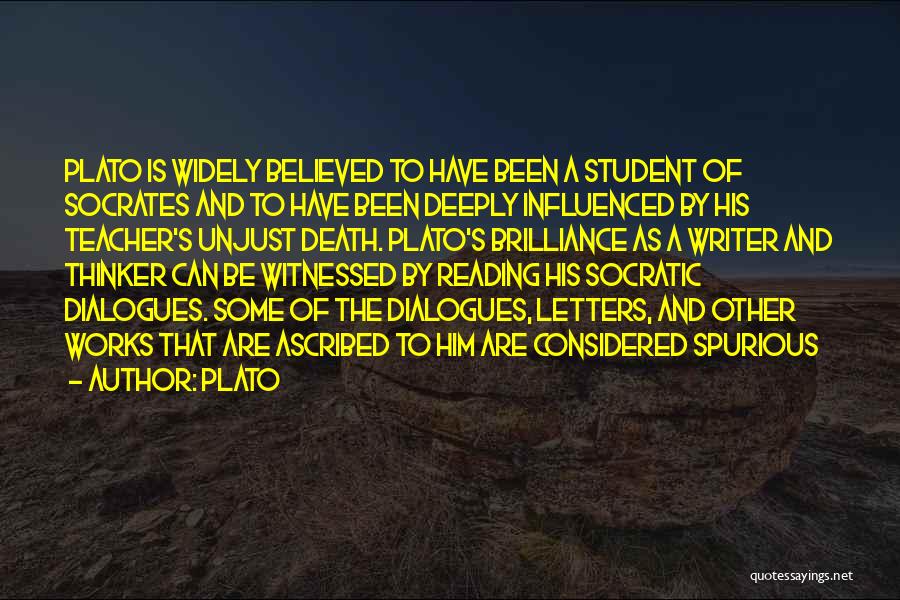
Plato is widely believed to have been a student of Socrates and to have been deeply influenced by his teacher's unjust death. Plato's brilliance as a writer and thinker can be witnessed by reading his Socratic dialogues. Some of the dialogues, letters, and other works that are ascribed to him are considered spurious — Plato

The idea of mind separate from body goes far back in time. The most famous expression of this is the idea of the Platonic image discussed in the Socratic Dialogues (circa 350 BC). Socrates and Plato expressed the opinion that the real world was but a shadow of reality, and that reality existed on a higher, purer plane reachable only through and preserved in the mind. The mind was considered immortal and survived the crumbling corpus in which it dwelt. But only enlightened minds, such as theirs, could see true reality. As such, they believed people like themselves ought to be elevated to the position of philosopher kings and rule the world with purity of vision. (A similarly wacky idea was expressed by the fictional air force General Jack D. Ripper in Kubrick's classic dark satire Dr. Strangelove. General Ripper postulated that purity of essence was the most important thing in life.) — James Luce
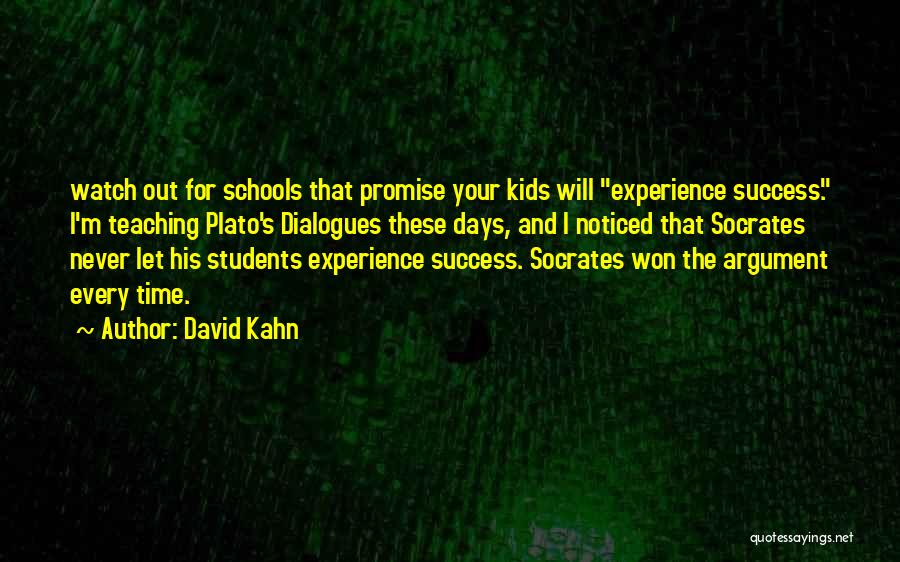
watch out for schools that promise your kids will "experience success." I'm teaching Plato's Dialogues these days, and I noticed that Socrates never let his students experience success. Socrates won the argument every time. — David Kahn

Plato's dialogues bear at least some similarities to the classical plays. — Benjamin Jowett

Conversation. In Laches, he discusses the meaning of courage with a couple of retired generals seeking instruction for their kinsmen. In Lysis, Socrates joins a group of young friends in trying to define friendship. In Charmides, he engages another such group in examining the widely celebrated virtue of sophrosune, the "temperance" that combines self-control and self-knowledge. (Plato's readers would know that the bright young man who gives his name to the latter dialogue would grow up to become one of the notorious Thirty Tyrants who briefly ruled Athens after its defeat by Sparta in the Peloponnesian War.) None of these dialogues reaches definite conclusions. They end in aporia, contradictions or other difficulties. The Socratic dialogues are aporetic: his interlocutors are left puzzled about what they thought they knew. Socrates's cross-examination, or elenchus, exposes their ignorance, but he exhorts his fellows to — Plato





